#Extradition agreements may result in persons being sent back subsequently being charged tried and sentenced to death. Hong Kong, at present no extradition if it is political in nature and the requesting country need give an undertaking that the death penalty will not imposed...which is difficult if national laws provide for the death penalty.
In Malaysia, Australia is refusing to sent back convicted murderer Sirul Azhar because sending him back means that he may be sentenced to death. However, if Malaysia abolishes the death penalty, not just the mandatory death penalty, and commutes the death sentence of all on death row, the situation may be different...
Sending back anyone to Malaysia has the risk of death penalty. A person could be send back, but there can be no GUARANTEE that after return, he may end up being charged with some other offence that carries the death penalty, is there?
What about Detention Without Trial? Should countries being requested to send back Malaysians suspected of a crime have to worry about this - the fact that the said person may simply end up under Malaysia's draconian Detention Without Trial laws - hence the denial of a fair trial?
SOSMA - Well, this provides for the 'denial of bail', and the use of evidence not usually admissible in trial, and criminal procedure(not usually allowed in a fair trial) - Should the return Malaysians back to Malaysia on the request of Malaysia.
CONVICTED PRISONERS UNDERGOING SENTENCES IN MALAYSIAN JAILS - This is a totally different set of issues...the question of discrimination arises...better(or worse) prison conditions in the requesting country, different sets of conditions when it come to 'parole' proceedings or even Petitions to King/Sultan...this we may discuss at a later time?
MALAYSIA MUST ABOLISH THE DEATH PENALTY, DETENTION WITHOUT TRIAL LAWS AND SOSMA-LIKE LAWS...
Hong Kong is considering changing the law on transferring fugitives – so how are extraditions dealt with now, and why are there no deals with mainland China, Taiwan and Macau?
- If proposal becomes law, there will be an extradition arrangement between Hong Kong and the mainland for the first time
- But legal experts caution such a change could also affect existing arrangements with other jurisdictions
PUBLISHED : Wednesday, 13 February, 2019, 8:20am
UPDATED : Wednesday, 13 February, 2019, 9:39pm
The
proposal by the Security Bureau is the latest response to a
high-profile case in Taiwan, involving a Hongkonger accused by the
authorities there of murdering his pregnant girlfriend last February
before fleeing to Hong Kong.
Chan
Tong-kai, 19, was arrested in Hong Kong, but is facing charges related
only to having his dead girlfriend’s bank card, cash and other
possessions.
He
has not been sent to Taiwan, despite requests from the authorities
there, because there is no formal extradition agreement between the two
places.
If
the bureau’s proposal becomes law, there will be an extradition
arrangement between Hong Kong and the mainland for the first time. Legal
experts caution that such a change could also affect existing
extradition arrangements with other jurisdictions.
How are extradition requests handled now?
Hong
Kong has signed mutual extradition agreements with 20 countries,
including the United States, Britain, Canada and neighbouring
jurisdictions such as the Philippines and Singapore. Every new agreement
negotiated between Hong Kong and a different country must be approved
by the city’s lawmakers.
When
a foreign country makes an extradition request, Hong Kong’s chief
executive must decide whether to issue an arrest warrant. Among
other things, the city’s leader must consider if the accused person’s
alleged action would be considered a crime in Hong Kong as well, and be
satisfied that the case was not of a political nature.
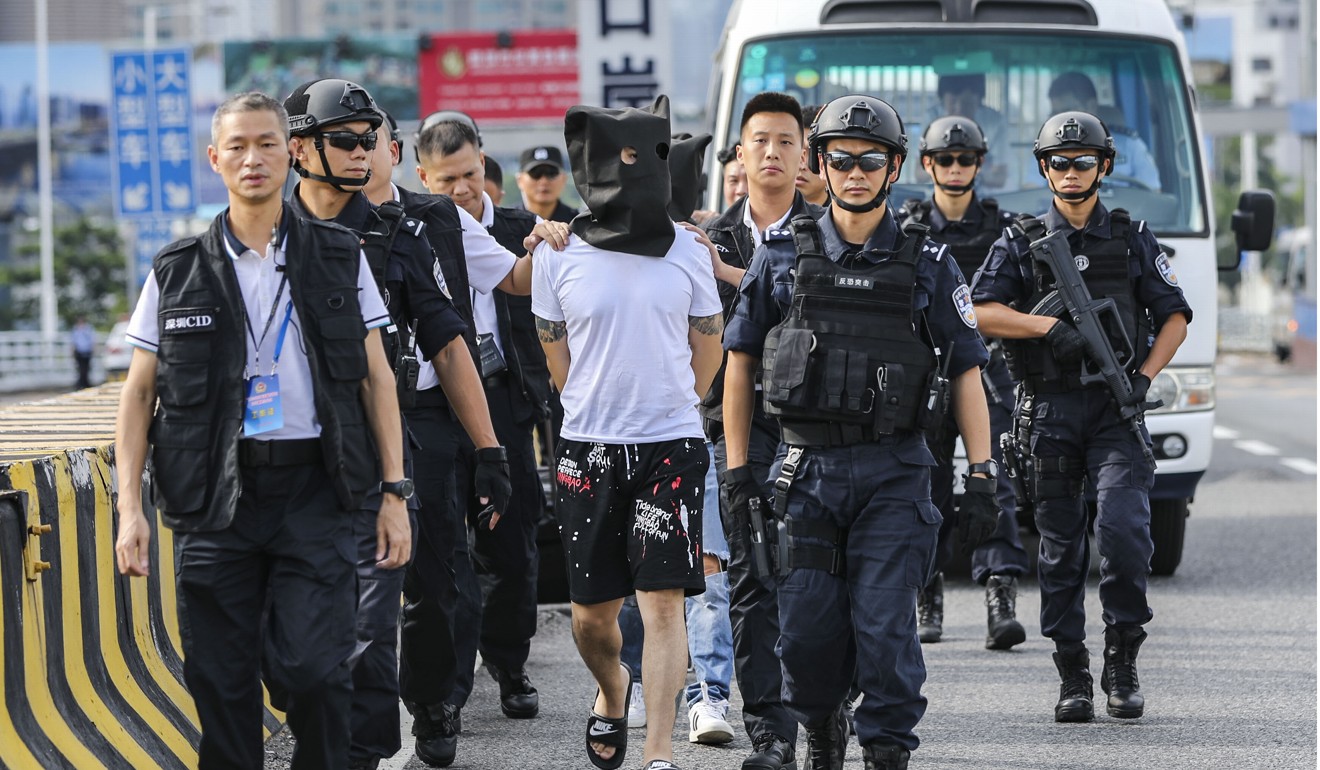
If
the crime the person is accused of carries the death penalty in the
jurisdiction requesting extradition, the country must undertake not to
impose the death penalty if the suspect is sent back.
If an arrest warrant is issued, the fugitive is allowed to oppose the order in a Hong Kong court.
Aside
from extraditing wanted individuals, Hong Kong also provides criminal
legal assistance to 32 countries, for instance, by handing over
evidence, with decisions made by the secretary for justice.
Why is there no extradition to the mainland, Taiwan and Macau?
Hong
Kong’s two main laws governing the transfer of fugitives and providing
help in criminal cases – the Fugitive Offenders Ordinance and the Mutual
Legal Assistance in Criminal Matters Ordinance – have expressly
excluded China. Macau and Taiwan are also excluded.
On
a discretionary basis, mainland authorities have handed over to Hong
Kong fugitives accused of violating the city’s laws. But this has only
been an administrative arrangement, and Hong Kong has never
reciprocated.
The former deputy director of public prosecutions, John Reading SC, said the
major obstacle in reaching an agreement with the mainland was the death
penalty in its legal system. Other signatories were prepared to give
Hong Kong the assurance in their respective agreements that they would
not impose the death penalty if a fugitive was extradited.
“I
really can’t believe that China would agree to give an undertaking not
to impose the death penalty if somebody is to be extradited to China,”
he said.
Hong Kong and the mainland have moved closer in recognising civil and commercial verdicts by each other’s courts.
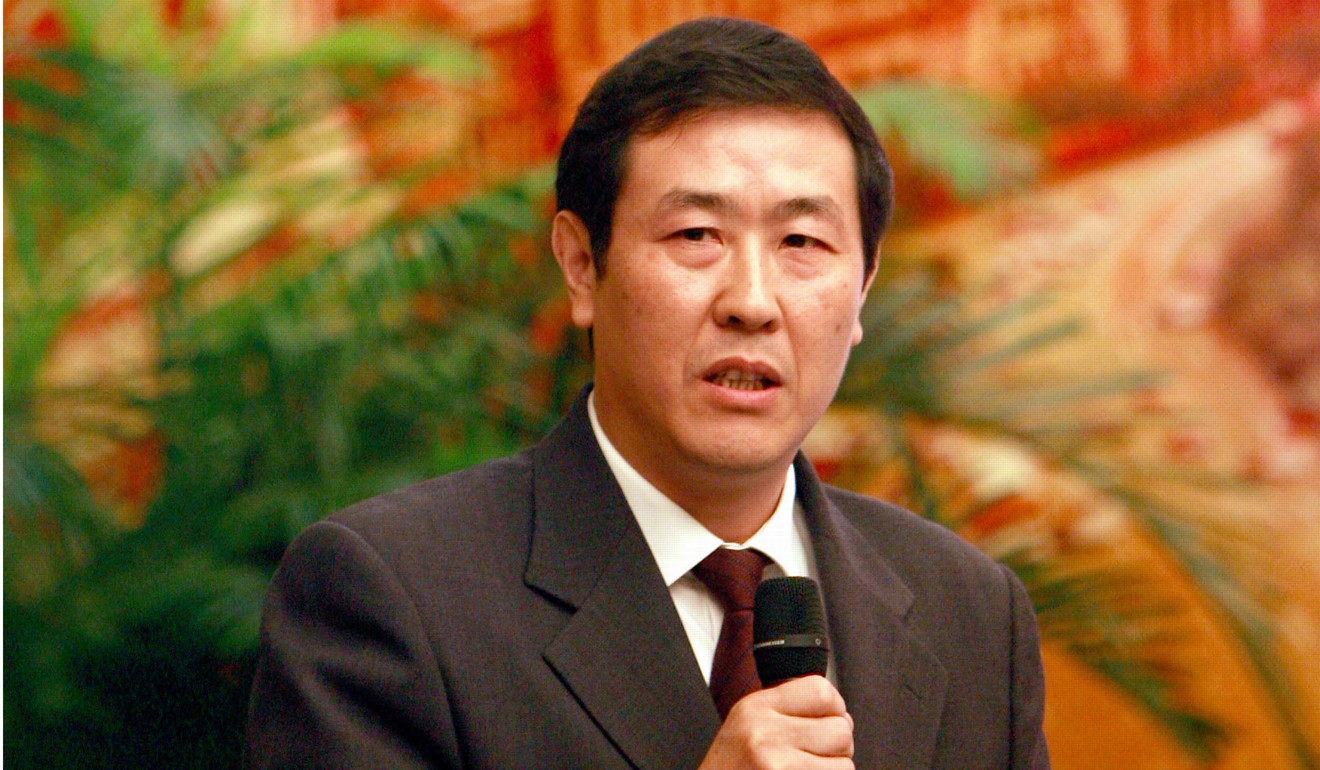
In
recent years, the mainland’s judiciary has also raised the issue of the
absence of mutual legal agreements on cross-border criminal cases. In
2017, the former vice-president of the Supreme People’s Court, Shen
Deyong, mentioned the issue in a speech in Hong Kong.
After
the two sides signed a reciprocal arrangement on enforcing judgments in
civil cases, a spokesman of the Supreme People’s Court said there was a
need to also “resolve the void in criminal legal assistance between
Hong Kong and the mainland”.
What is Hong Kong pushing for in changing the law?
The
bureau has proposed taking a case-by-case approach for extraditions
involving any place with which Hong Kong does not yet have an agreement.
The
process will involve following all the requirements in the Fugitive
Offenders Ordinance, which covers Hong Kong’s dealings with the 20
countries with which there are extradition agreements.
To
trigger the process, the chief executive will issue a certificate to
request a provisional arrest, and that will be used to apply for an
arrest warrant in court. The accused person may contest the extradition
in court.
The
government cited the case of the woman found dead in Taiwan last year
to justify the need to change the law. Although her boyfriend was in
custody in Hong Kong, there was no extradition arrangement to send him
to Taiwan, where the authorities suspect him of murder.
Hong Kong hopes to amend the law before the Legislative Council’s summer recess in July.
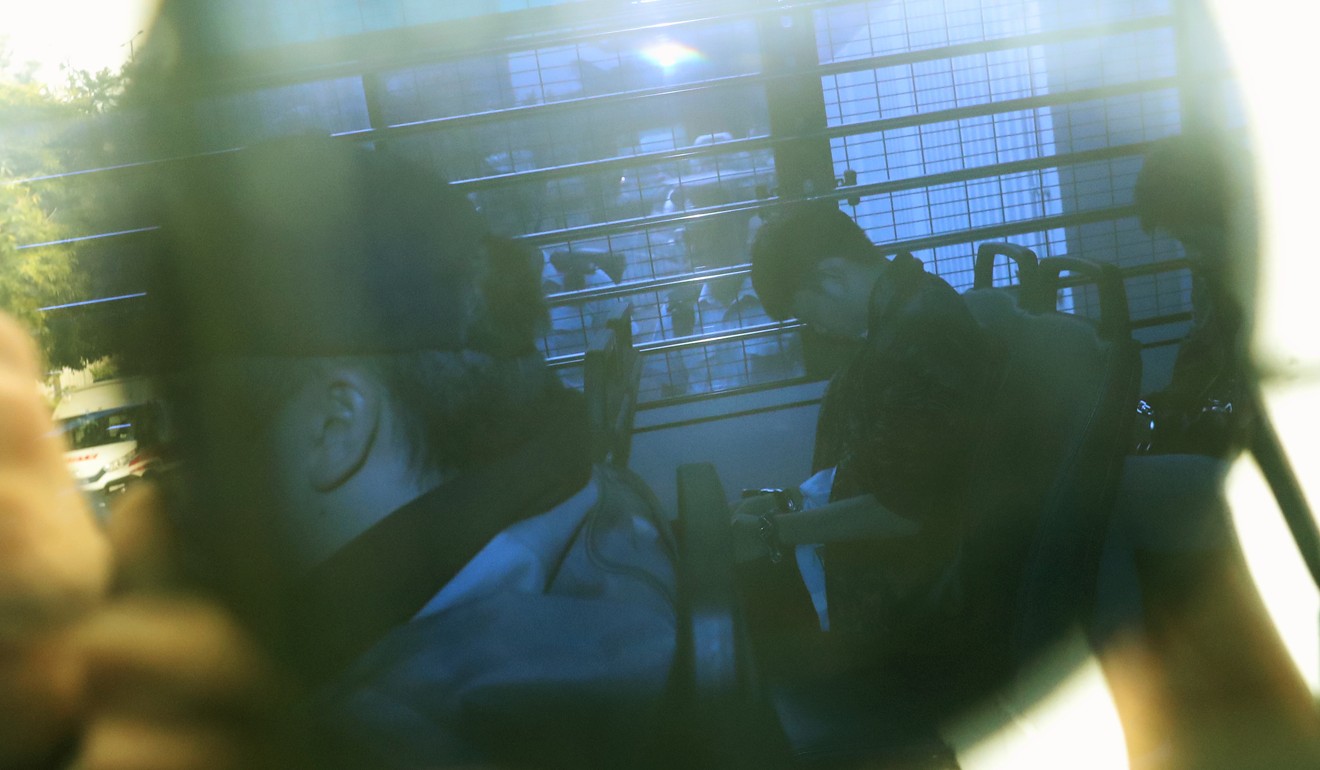
Are there any concerns over the proposed change?
Democratic
Party lawmaker James To Kun-sun and Reading both warned that
introducing the one-off extradition mechanism could affect how countries
with extradition agreements view Hong Kong.
“Taking a case-by-case approach could mean it could apply to all sorts of cases,” To said, citing the 2015 saga of five Hong Kong booksellers who disappeared.
In contrast, he said, extradition agreements always relied on trusting the requesting country’s legal system.
Pro-establishment
lawmakers Starry Lee Wai-king and Regina Ip Lau Suk-yee dismissed
concerns over handing over Hongkongers to mainland authorities, saying
there were enough safeguards.
Beijing and Hong Kong reach deal on notifying each other about detainees
Law
professor Simon Young of the University of Hong Kong, however, said the
proposed change could be a breakthrough, so long as a fugitive received
no less legal protection before being handed over.
The
change could strengthen strategic cooperation with Taiwan and Macau in
combating commercial and financial crime as well, he said.
Young
pointed out that at present, if a criminal was suspected of moving
assets to any of these jurisdictions, there was very little Hong Kong
could do to recover them.
Can the rule change be retrospective?
Technically, the new law could apply to cases that happened earlier, although much depends on the actual wording of the bill.
“Usually
the law is not retrospective, but sometimes, very rarely, drafters do
make the law retrospective,” Reading said. But such a move could attract
opposition, he added, if the law was viewed as violating the basic
principle of natural justice.
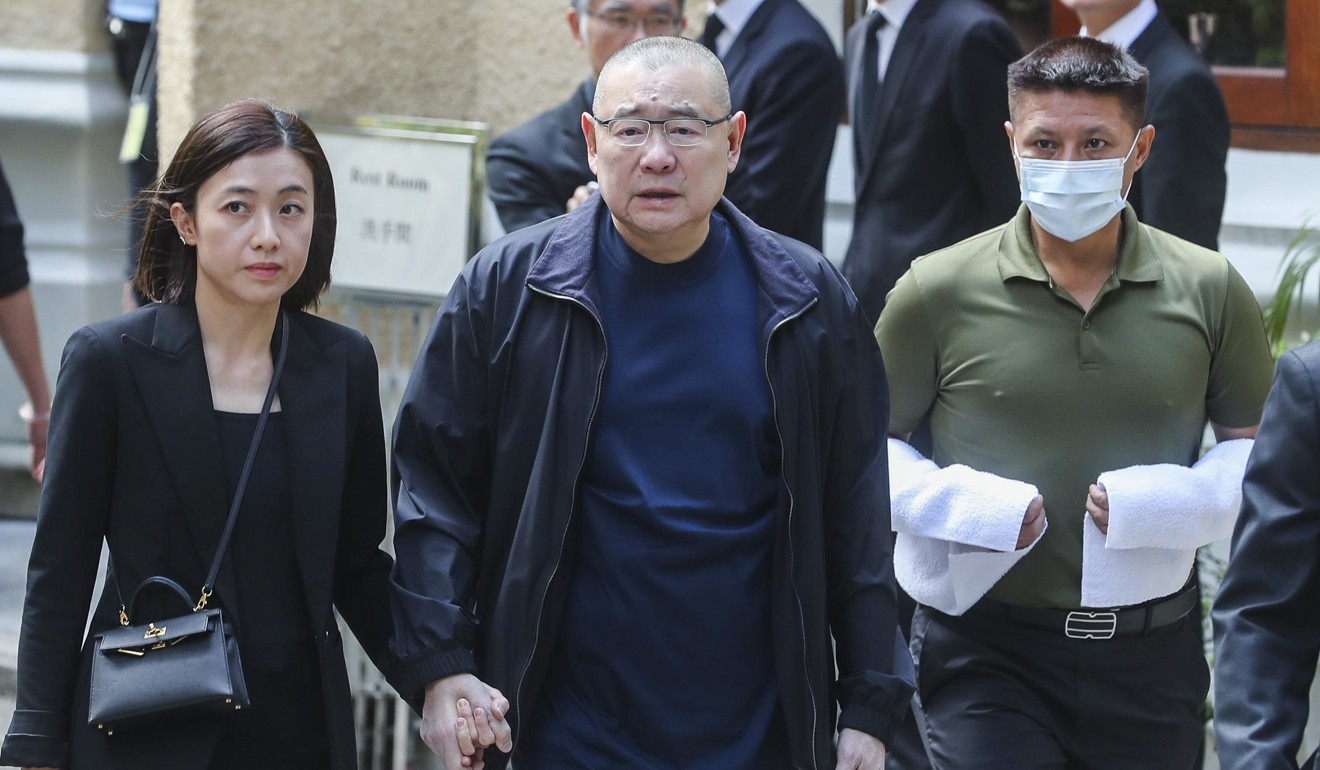
Young
said the principle of not making the new law retrospective would not
apply if an action such as murder was considered an offence in both
jurisdictions. He noted that other existing extradition arrangements
could apply in cases that happened before the change in the law.
For
example, he said, after the rules were changed, the Macau government
could request the extradition of Hong Kong property tycoon Joseph Lau
Luen-hung, who was jailed in absentia for more than five years in 2014 on corruption charges.
But such request did not mean Lau would be jailed if Hong Kong did decide to hand him over to Macau.
“Under
the existing Fugitive Offenders Ordinance, you cannot send someone to
serve a sentence if he was convicted without being present at the
trial,” Young said.
“You would only send a person back to face trial.”
Additional reporting by Ng Kang-chung
This article appeared in the South China Morning Post print edition as: Ensuring justice is served by closing fugitives’ legal loophole - South China Morning Post, 16/2/2019
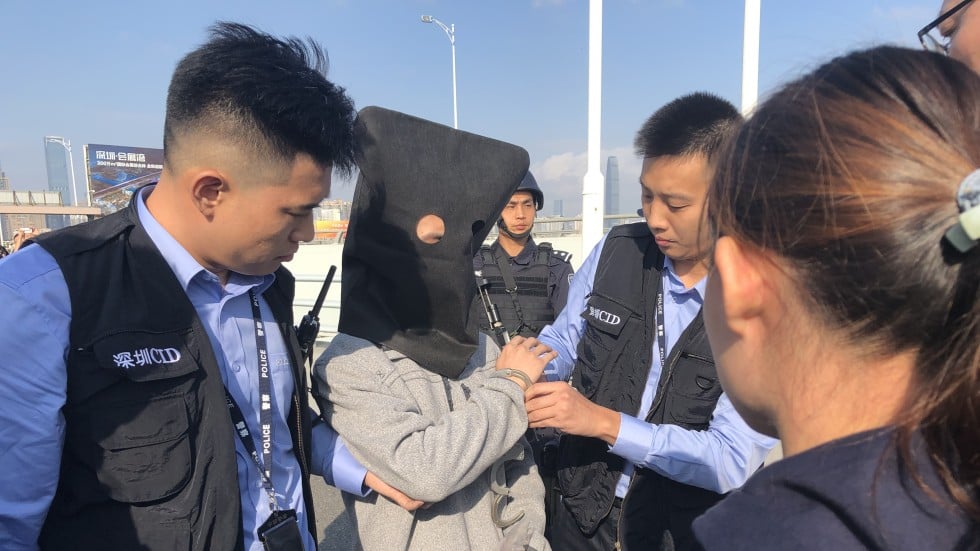






No comments:
Post a Comment